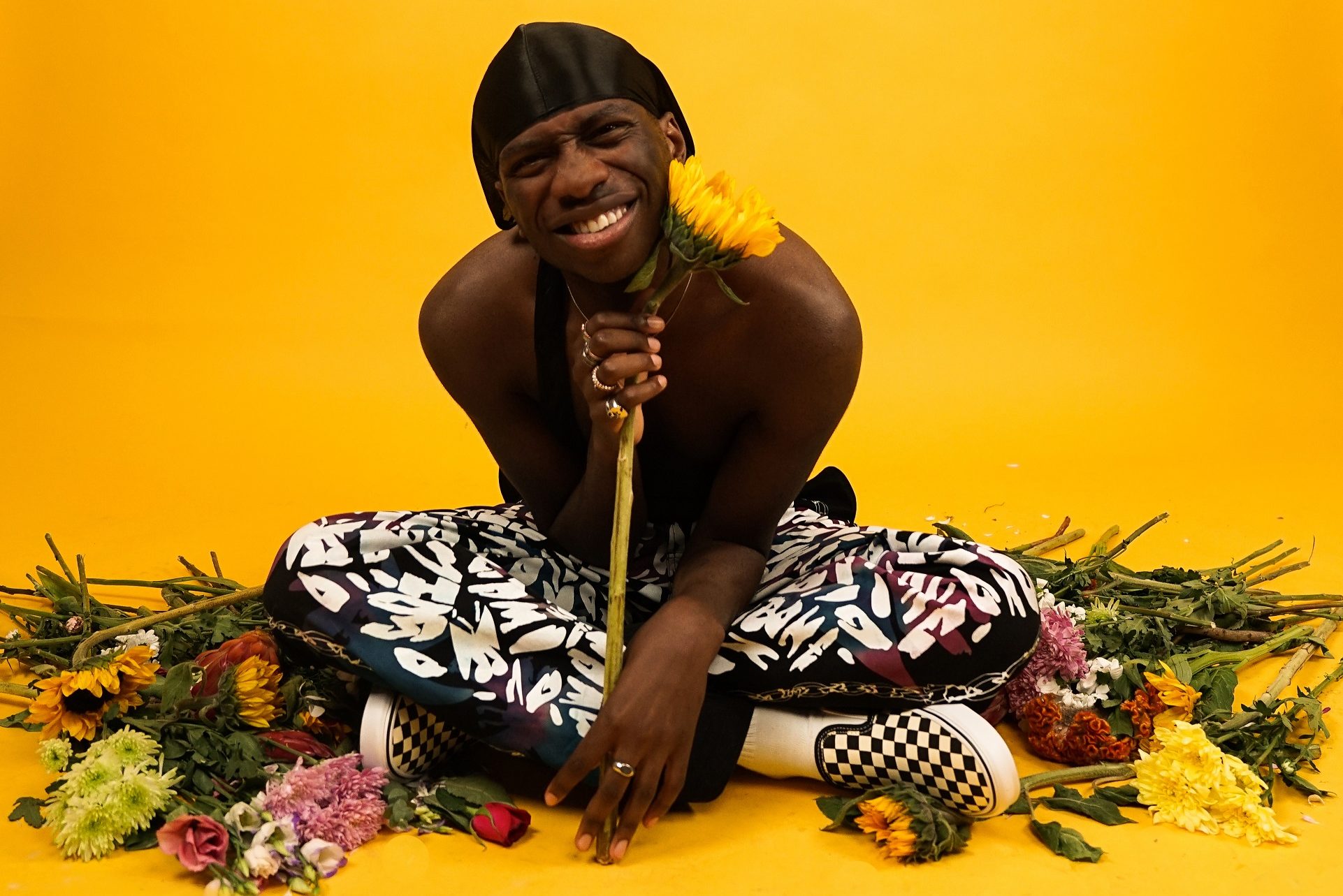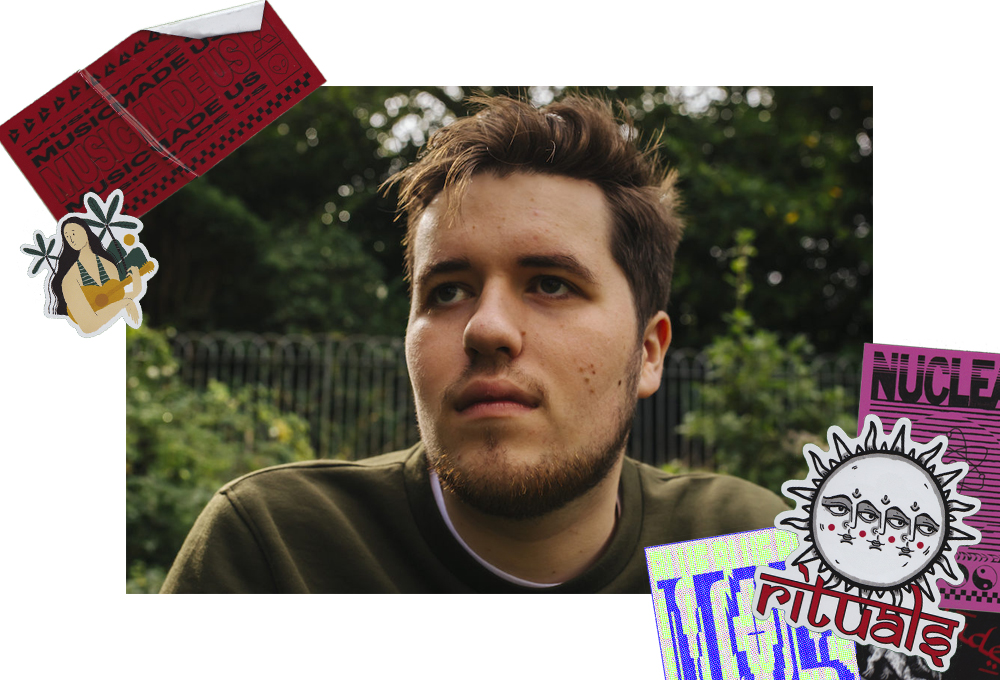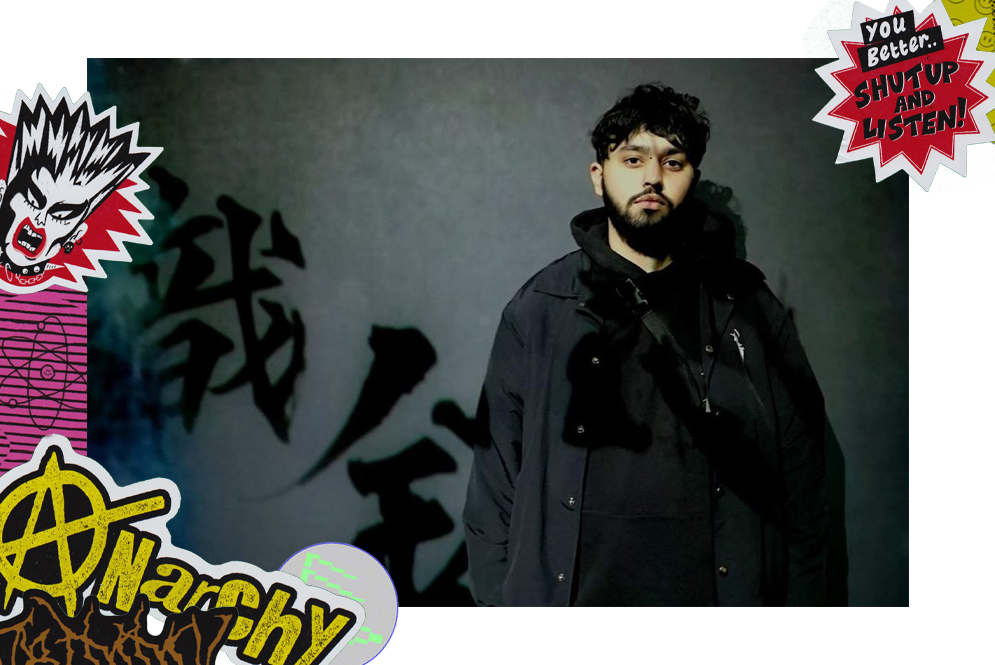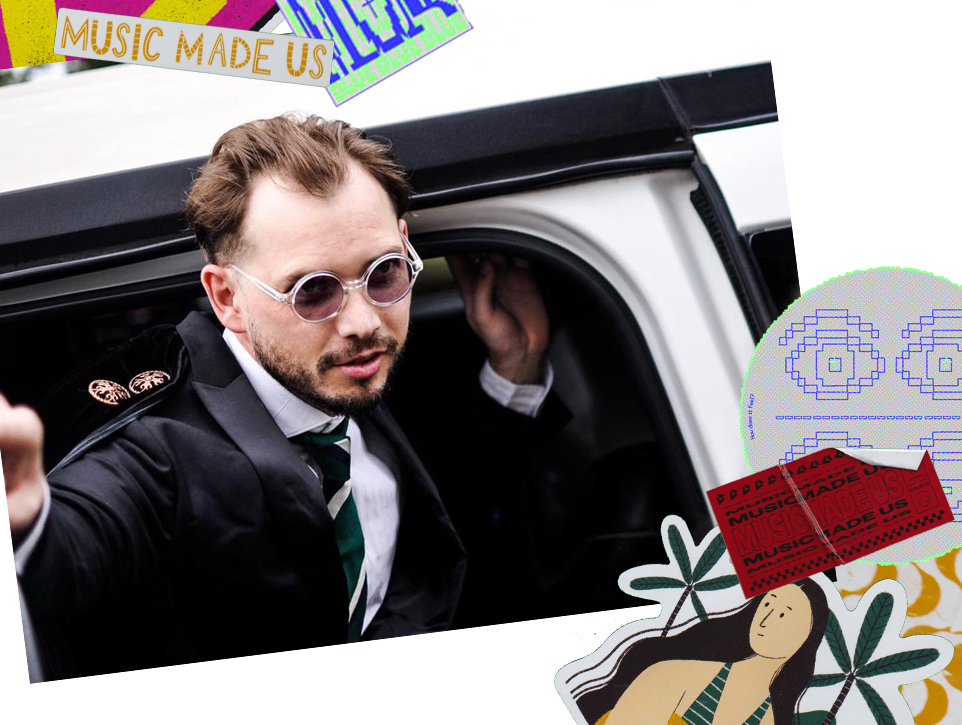Earlier this year, we announced our latest partnership with DIY magazine to celebrate our #MusicMadeUs campaign. As part of this new partnership, students from across our colleges interviewed artists and industry professionals in collaboration with DIY and through the lens of Music Made Us. They also received guidance and mentorship sessions before the interview with DIY’s journalism and editorial team.
Here BIMM Institute Brighton’s Caitlin Webb interviews Master Peace on taking indie to strange new places, self-expression, and exposing vulnerability in his work to make it truly unique.
Despite its ever-growing popularity, the indie rock that fills festival line-ups and sesh playlists across the country is facing growing backlash. Hordes of Dark-Fruits-sipping lad bands that once charmed millions with their twangy guitars are increasingly finding themselves the butt of the joke. Some would argue, this is down to the oversaturation of their market, breeding a sense of disillusionment with the genre’s ability to grow. In essence, indie is in danger of growing stale, and Master Peace is taking it to strange new places.
When I merge the rock stuff and the hip-hop stuff, it’s like an accidental experiment that went right
Master Peace – just Peace to his mates – has been creatively defined by his ability to fuse genres into something truly innovative and new, aiming to revive the indie spirit he grew up with by diversifying it. “It all just complements each other,” he says. “I think I’m just into everything, you know? When I merge the rock stuff and the hip-hop stuff, it’s like an accidental experiment that went right.” Peace’s eclectic tastes are well-documented; in true 2000s compilation album fashion, he grew up on an equal mix of conscious rap, indie-rock and bubblegum pop. These influences have granted Peace the exact freewheeling approach to genre limitations that he’s proud to be known for. “Cause I’ve got the hip-hop elements that people wouldn’t expect, that’s why it works. They don’t understand why they like it, but we understand why they like it. That’s why I think my version of indie will break out.” With a wry smile, he declares that “indie just needs the right person to fly its flag, and I think I’m the right person.”
Peace may seem a little cocky there, but he’s fought hard for his confidence. He started making music in his teenage years, essentially as a joke, but admits he couldn’t help but be disappointed in the reactions he got from his peers. “I was in two minds about it,” he tells me. “Loads of people in my school would take the piss, but my ex and some of my friends just went ‘carry on doing it, cause you never know’…I had the people I cared about on board, so I didn’t really care what other people thought. But when you’d see someone and they’d laugh at you like ‘ohhh that’s Peace, he dropped that shit song on Soundcloud’, I…I wouldn’t say it was demoralising, but it did sometimes make me think ‘how am I gonna gain fans if my own neighbourhood and my own school don’t get it?’”
It’s a young age to go through a career crisis, but in a way, it’s given Peace the resilience needed to deal with the hardships the pandemic has inflicted on artists, especially up-and-coming acts. He furrows his brow at the topic of lockdown and simply says “I need to make sure I don’t just disappear and hide away”, just as he “had to firm it and take control” when insecurity plagued him in the early days of his career. “During the lockdown, I definitely had a lot of self-doubts”, he admits, “but it’s too far to turn back now.” Hindsight has made many people dismiss the severity of the pandemic in those early months, but Peace remembers the pressure it placed on artists who were left without a safety net, comparing it to The Hunger Games in terms of creatives battling for relevance and scraps of support.
Without you, who’s gonna hear how you feel?
“I really had to talk to myself,” Peace says, “and remind myself ‘you’ve gotta do this, this is what you came here to do. Without you, who’s gonna hear how you feel?’”. According to Peace, it was his need for self-expression that kept him going. His lyrical style is notably vulnerable, with reflections on mental health and the importance of friendship – even upbeat love songs like ‘PDA’ acting as a nifty little role reversal of the fuckboy cliché. “My first EP was about, like, my relationship, and then this EP that I’m releasing soon is more based on family relationships and my own mentality. It was just a different type of relationship, really, that I put into this upcoming project.” In line with this vulnerable songwriting, he adds that “everything I say in my songs is real. I wouldn’t just say it for the sake of it; it’s real personal stuff.”
It’s an emotionally intelligent, take-it-or-leave-it kinda attitude, one that takes a lot of courage to maintain in a culture that demands men repress their true feelings. Arguably, though, it’s this approach that makes Master Peace such an individual act: in his own words, “I don’t think I sound like anyone. I think I’m very me.”
Our Music Made Us campaign is told through the students, graduates, journalists, experts and passionate people who have been shaped by this creative outlet. Discover their stories here.



